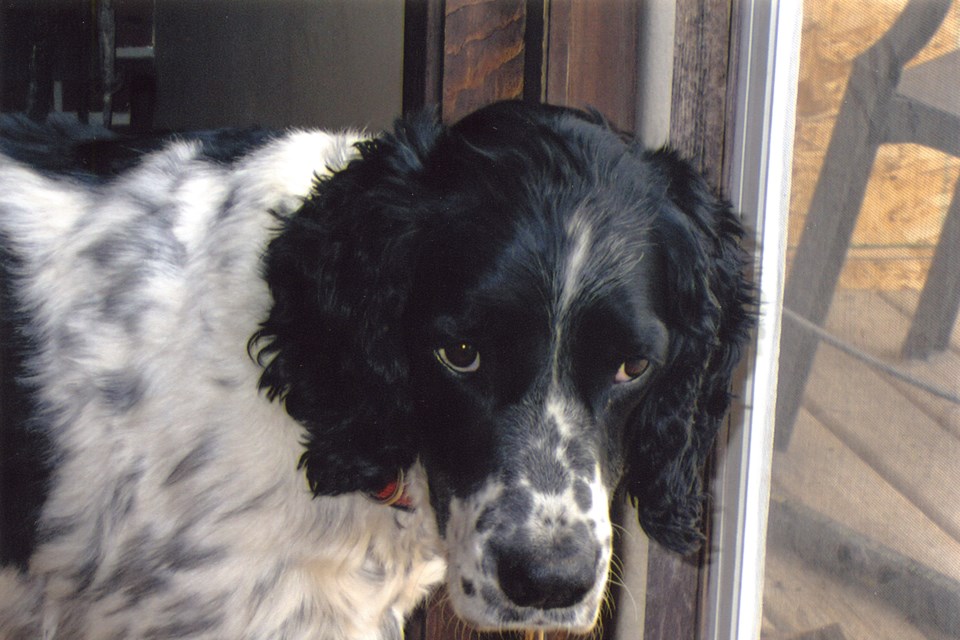OLDS – New dog kennelling businesses, commercial dog breeding and some animal services would be prohibited in residential areas of town under a proposed land use bylaw amendment intended to address concerns.
Currently the only uses prohibited for home occupations under the land use bylaw are cannabis retail sales and cannabis production and distribution.
“We’re proposing that veterinary clinics, veterinary hospitals, commercial dog breeding and kennels be added to that list as well, as well as animal services with more than three dogs on site,” said Natasha Wright, a planner with Parkland Community Planning Services.
The land use bylaw amendments are being considered in tandem with Community Standards Bylaw revisions to address concerns related to dog breeding and kennelling in residential areas.
Town staff said the section of the Community Standards Bylaw concerning dogs was already scheduled for a review when in August, a family’s dog was killed inside its dog run by three or four dogs belonging to a dog breeding business being run at a neighbourhood home.
It’s believed the dogs escaped from the yard of Alberta XL Bullies' owner Lindsay Walsh when a gate was left open, and forced their way into the dog run on the property of Rhonda and Trevor Dodd. Their dog Jake was killed.
A survey was made available from Nov. 1 - 18 so residents could provide their thoughts about what rules should be regarding dogs in the community.
Sixty per cent of Olds residents who responded to the town survey and engagement period said dog breeding operations should not be allowed in residential areas and 73 per cent said dog kennel operations should not be allowed in residential areas either.
Council gave first reading to several amendmemts and additions to the land use bylaw on Dec. 9.
The change in definition of home occupation to prohibit commercial dog breeding and kennelling is only one of the changes council is considering.
Wright said council expressed a desire to limit the number of dogs that may be on site as part of a home occupation to the maximum allowable limit within the Community Standards Bylaw, which is also under review.
Proposed changes to that bylaw limit the number of dogs in a dwelling to three.
For any proposal involving dog sitting or boarding as a home occupation they would be limited to a 48-hour window for boarding by the animal services definition, and would also be limited to a maximum of three dogs on site at any given time.
Bylaw No. 2019-31 also proposes to add two new definitions to the land use bylaw: one for commercial dog breeding and another for kennels.
Wright said the intent of adding these definitions is so these uses can be isolated from other definitions and then regulated. This makes it possible to allow them to develop in certain land use districts and prohibit them from being developed in others.
The bylaw proposes that kennelling and commercial dog breeding would be a discretionary use in light industrial, heavy industrial and industrial business districts.
Administration is also proposing to amend the existing definition of animal services in order to draw a clear distinction from the new kennel definition.
The distinction that is being proposed is a time limit in regards to boarding.
The amendment to animal services will allow some boarding, such as dog sitting or groomers who may overnight a pet, but will prohibit any boarding past 48 hours.
The proposed definition of kennel will apply to boarding of dogs for more than 48 consecutive hours.
If someone wants to board dogs for more than 48 hours they would need to locate in an industrial district, said Wright.
The proposed land use bylaw changes will not affect currently approved animal services home occupations, she added.
“If this bylaw does receive third reading, and it does come into force, any existing approvals for animal services within residential districts as a home occupation, if they have an approval in hand, they get to continue into the future as they’re approved. So this doesn’t retroactively affect any of those approvals.”
Council is expected to consider another reading of the bylaw in January.



